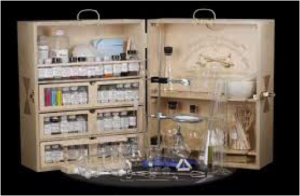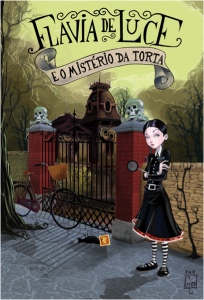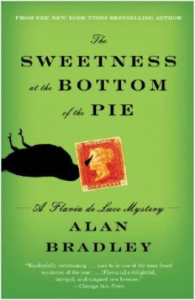Yesterday, we talked about what sort of people become scientists and how they think. If you missed Part 1 of Science Fact and Science Fiction, be sure to go read that first.
And now, back to the list of 4 things writers get wrong about science and scientists.
3. As Always, You Need to Follow the Money…
Many senior scientists don’t get much lab time. In fact, most of the professors I studied under or worked with in college spent most of their time raising funds to keep the lights on and the experiments rolling. Lab space, lab equipment, experimental materials, and graduate student salaries don’t come cheap. So, whenever you read or write about a scientific study, it behooves you to think about where the money comes from. Figure out the funding and you’ll often have a good idea of the sorts of biases and politics you’re going to have to deal with. Additionally, each of the four major types of scientists — academic, corporate, government, and amateur/startup — have their own quirks, habits, and means of incentive.
Academic scientists are driven by the stricture of “publish or perish.” Their goal is to secure funding from governments, special interest groups, or businesses to allow them to study what interests them. They are often pure scientists (remember from yesterday: those who value knowledge for its own sake). However, the modern system is set up such that academic scientists are under a great deal of pressure to perform “ground breaking” work and publish those results with regularity.
The problem is that getting a break-through every couple months is unlikely. A scientific investigation, if done properly, may take years or even a life time to bear fruit. There are many researchers whose discoveries weren’t recognized as important until well after they had died. However, that isn’t an excuse in a publish or perish culture. You still need to make regular “progress” or you can lose you funding and your job. This pressure has led some to distort or even outright fabricate data in order to keep the money flowing. Pro tip: Want to be despised by a bunch of scientists? Falsify data. Not only is it dishonest and often illegal, even minor transgressions will destroy your reputation and career if discovered.
Corporate scientists, on the other hand, don’t have as much trouble with the issue of funding. However, they also don’t really get to choose what they study. Their job is to invent, improve a product, or make a discovery that can then be commercialized to make a boatload of money. Preferably, they’ll do this quickly and cheaply. Ultimately, they get their funding from the company’s consumer base.
Naturally, applied scientists (remember: those who find value in using knowledge) tend to migrate to the private sector. This is the sort of work that I do, and I really enjoy it. I can take the time and energy that I’d otherwise have to focus on finding funding and do the work. Plus, I genuinely enjoy what I do, so it’s a win-win.
Next are the government scientists, who can be further split into two major groups. First are the administrations with government mandated missions, such as NASA or the handful of government research labs. The reason they exist is because the government thinks that either a) no one would invest in that kind of work and it’s essential to public wellbeing, or b) they don’t want that sort of work in the hands of private entities. In fact, there’s a line in the United States Constitution (Section 8) that mandates that the Federal Government is to “promote the Progress of Science and useful Arts.” And they do. Government grants and contracts are responsible for many of the major discoveries and technological advances we take for granted.
The second group of government scientists are those who are employed to act as regulators and advisers. Their job is to double check the rest of us to ensure that our work complies to local, state, and federal laws, as well as ensure that new products won’t cause harm to the public. They are also often expert witnesses for various branches of the government. However, it is still a government job, fraught with all the same sort of bureaucracy, problems, and politics that are characteristic of any government endeavor.
The last group is the amateurs and startups. Though they are often the most underrated group, they are also often the pioneers with the unique vision needed to change the world. These folks aren’t limited by corporate goals or academic systems. They are the sorts of people who passionately follow their interests and therefore can be either pure or applied scientists. Amateurs often don’t end up making a lot of progress, largely because of lack of formal training or funding. Most startup companies fail because they can’t compete in the market or their “big idea” isn’t so ground breaking after all. However, sometimes these people invent or discover things that change the world. After all, the Jet Propulsion Laboratories owes their origins to four “amateurs” who were students at Caltech. Even today, many successful technology companies are founded on the basis of a great idea and a lot of effort put in by people working in a basement.
4. Science is Imperfect – That’s the Point!
Everyone tends to look to science for answers when really they should be looking for questions. Fundamentally, the point of science is both understanding and predictive power. Observations of the past should be used to predict the future. If they fail to do so, they aren’t necessarily useless. Rather the model is simply incomplete. As hypotheses are repeatedly tested and challenged, they gain weight and become theories. As theories age and stand up to the efforts of hundreds and thousands of observations and experiments, they become taken as “fact.”
Though scientists have earned a reputation for arrogance, what they really need is a profound sense of humility. Scientists are human. Our understanding can be wrong or incomplete. We must NEVER reject a new piece of evidence because it clashes with our world view. Hypotheses that were once viewed as ridiculous are now widely accepted as fact. Need an example? If you had stood up fifty years ago and asserted that black holes are real, you would’ve been laughed out of the room. Black holes were the stuff of science fiction. However, we now know that not only do black holes exist, but they are fairly common (if hard to see). In fact, our very own Milky Way galaxy, like most others, actively orbits around a single supermassive black hole at the galactic center! (Want to know more? Look up Sagittarious A*.)
In conclusion, the really important question is this: What kind of story are you telling? How important is scientific reality to your audience? Can you get away with hand waving and mutterings of “sufficiently advanced technology,” or do you need to research every single tiny detail? I can’t tell you for sure. It depends on your audience and your own tastes. Getting science “right” in fiction is less about factual accuracy than it is about being consistent. Writers don’t really need to be experts, however. We can find plenty of authorities who are happy to share their knowledge.
Fortunately for us, Science Fiction is speculative. The most important thing about getting science right is to ensure that you are internally consistent and your characters behave like scientists would. I’ll say this again because it is essential. What you can’t afford to do is get the human element wrong. Though science is a body of knowledge and a set of skills, it is also a point of view. If we write the characters with truth and consistency, we can sell the rest.



